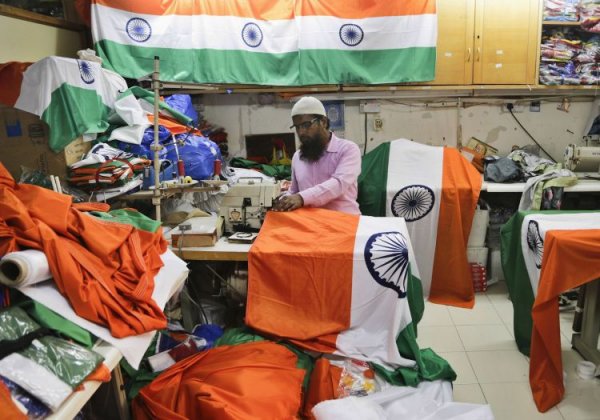prasad1
Active member

15th August 2017: India’s 70th Independence Day. A day for remembering the freedom fighters and the martyrs. A day when patriotism runs high and promises are made to die for the country.
Yet, as cynics would say, Independence Day is now just one more day of celebration instead of being a day of reflection. People wear clothes in the colours of the flag, retail stores announce sales, restaurants have special menus and most of us enjoy a mid-week holiday. Entertainment channels run programs about India’s freedom struggle. Radio channels air patriotic songs and schools and colleges organize functions. But beyond the superficial expression of patriotism, are we really as patriotic as we profess to be? Do we really care for our nation?
I was forced to address this question when I heard my child prepare for his school’s Independence Day celebrations. He was rehearsing a song - a popular ‘desh bhakti’ song with the lyrics - ”Chodo kal ki batein, kal ki baat purani, naye dor mein likhenge, mil kar nayi kahani…hum Hindustani…hum Hindustani”. A few lines later is the couplet “Ram ki is dharti ko, Gautam ki bhoomi ko, sapno se bhi pyaara Hindustan banaye…”
..................................................
The land which was originally called Hindustan lay east of the river Indus – comprising modern day Pakistan and northwest India. In fact, even the Mughal rulers called their Indian dominion ‘Hindustan’. Hindustan was in use synonymously with India during the British Raj and the dialect spoken in the northern parts of the country (a mix of Hindi and Urdu) was called Hindustani. Thus, there was no disconnect between India, Bharat or Hindustan. The people who belonged to this country were called Indians, Bharatiya, Hindustani – it was just a matter of nomenclature and ease of usage.
However decades of pseudo-secularism and a dedicated effort to run down our own past has led to distortion of the name “Hindustan”. Attempts have been made with regular frequency to project India – a country with one of the best track records of acceptance - as a religious bigoted nation. There is national outrage – not over the rape of a 5 year old child or the death of soldiers fighting a proxy war or the all pervasive corruption – but there is outrage over ‘perceived intolerance’ when the country is referred to as Hindustan. Being called a Hindustani is seen as an affront to the personal freedom, a threat to the secular fabric of the country and a cry for denouncing all other religions.
[FONT=calibrifont, calibri, Helvetica, Arial, sans-serif]......................................................[/FONT]
Like other years, this Independence Day and its associated celebrations will end. But will we use this opportunity to finally grow up, become mature citizens who worry about larger issues facing our country? Or will we continue to squabble over non-issues thus wasting precious collective time, resources and energies for pseudo-intellectual debates over semantics? If we chose the latter, then I am afraid, we have regressed from where we were in the 1960s. In such a case, celebrating Independence Day has no meaning as we haven’t even understood what patriotism is all about.
Read more at: http://www.sify.com/news/my-country-india-bharat-or-hindustan-news-columns-rioldNabfhdgd.html
Last edited:
